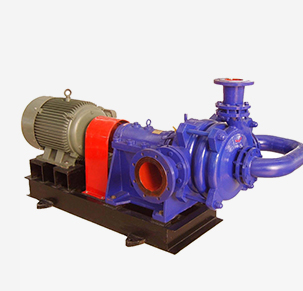Catalan
- Afrikaans
- Albanian
- Amharic
- Arabic
- Armenian
- Azerbaijani
- Basque
- Belarusian
- Bengali
- Bosnian
- Bulgarian
- Catalan
- Cebuano
- Corsican
- Croatian
- Czech
- Danish
- Dutch
- English
- Esperanto
- Estonian
- Finnish
- French
- Frisian
- Galician
- Georgian
- German
- Greek
- Gujarati
- Haitian Creole
- hausa
- hawaiian
- Hebrew
- Hindi
- Miao
- Hungarian
- Icelandic
- igbo
- Indonesian
- irish
- Italian
- Japanese
- Javanese
- Kannada
- kazakh
- Khmer
- Rwandese
- Korean
- Kurdish
- Kyrgyz
- Lao
- Latin
- Latvian
- Lithuanian
- Luxembourgish
- Macedonian
- Malgashi
- Malay
- Malayalam
- Maltese
- Maori
- Marathi
- Mongolian
- Myanmar
- Nepali
- Norwegian
- Norwegian
- Occitan
- Pashto
- Persian
- Polish
- Portuguese
- Punjabi
- Romanian
- Russian
- Samoan
- Scottish Gaelic
- Serbian
- Sesotho
- Shona
- Sindhi
- Sinhala
- Slovak
- Slovenian
- Somali
- Spanish
- Sundanese
- Swahili
- Swedish
- Tagalog
- Tajik
- Tamil
- Tatar
- Telugu
- Thai
- Turkish
- Turkmen
- Ukrainian
- Urdu
- Uighur
- Uzbek
- Vietnamese
- Welsh
- Bantu
- Yiddish
- Yoruba
- Zulu
Telephone: +86 13120555503
Email: frank@cypump.com
jul. . 30, 2024 02:46 Back to list
Design and Efficiency Analysis of Split Casing Pumps for Enhanced Fluid Transfer Solutions
Understanding Split Casing Pumps A Comprehensive Overview
Split casing pumps play a pivotal role in various industries, owing to their efficient design and reliability in transporting fluids. These centrifugal pumps are characterized by their split casing construction, allowing for easy access and maintenance, making them a popular choice for many applications such as water supply, irrigation, fire protection, and industrial processes.
Design and Structure
The fundamental design of a split casing pump consists of two halves of a casing that are bolted together. This split design provides several benefits. First and foremost, it allows for easy disassembly, enabling maintenance personnel to inspect and service the internal components without the need for extensive dismantling. This feature is particularly valuable in applications where uptime is critical and maintenance needs to be performed quickly.
Inside the casing, the pump houses an impeller and a volute. The impeller, typically made of high-quality materials to withstand wear and corrosion, is responsible for transferring energy to the fluid, creating the required pressure to move it through the system. The volute guides the flow of the fluid and helps convert kinetic energy from the impeller into pressure energy.
Advantages of Split Casing Pumps
2. High Efficiency These pumps are designed to operate efficiently under various conditions. Their ability to handle large flow rates with low energy consumption makes them ideal for large-scale applications.
split casing pump

3. Durability Constructed with robust materials, split casing pumps are built to withstand harsh operating conditions, including high temperatures and corrosive fluids.
4. Versatility Split casing pumps can be used in a wide range of applications, from municipal water supply and wastewater treatment to industrial and fire protection systems. This versatility makes them a favorite in diverse sectors.
Applications
Split casing pumps are utilized extensively in different fields. In the water treatment industry, they are employed for both raw water intake and finished water distribution. They also play a crucial role in heating and cooling systems, where they circulate water to maintain temperature stability.
Fire protection systems benefit from split casing pumps as they can deliver large volumes of water quickly, which is essential for firefighting efforts. Additionally, in the agricultural sector, these pumps are used for irrigation purposes, ensuring that crops receive the necessary water for growth.
Conclusion
In summary, split casing pumps are fundamental components in various industries due to their efficient design, reliability, and ease of maintenance. Their ability to operate effectively across different applications showcases their versatility and importance. As industries continue to evolve and seek innovative solutions for fluid transportation, the demand for split casing pumps is likely to remain strong. Understanding their design and functionality can help businesses make informed decisions about which pumps best suit their operational needs, ensuring efficiency and reliability in their fluid transport systems.
-
Horizontal Split Case Pump with GPT-4 Turbo | High Efficiency
NewsAug.01,2025
-
ISG Series Pipeline Pump - Chi Yuan Pumps | High Efficiency, Durable Design
NewsAug.01,2025
-
Advanced Flue Gas Desulfurization Pump with GPT-4 Turbo | Durable & Efficient
NewsJul.31,2025
-
ISG Series Vertical Pipeline Pump - Chi Yuan Pumps | Advanced Hydraulic Design&Durable Construction
NewsJul.31,2025
-
ISG Series Vertical Pipeline Pump - Chi Yuan Pumps | Energy Efficient & Low Noise
NewsJul.31,2025
-
pipeline pump - Chi Yuan Pumps Co., LTD.|High Efficiency&Low Noise
NewsJul.31,2025










